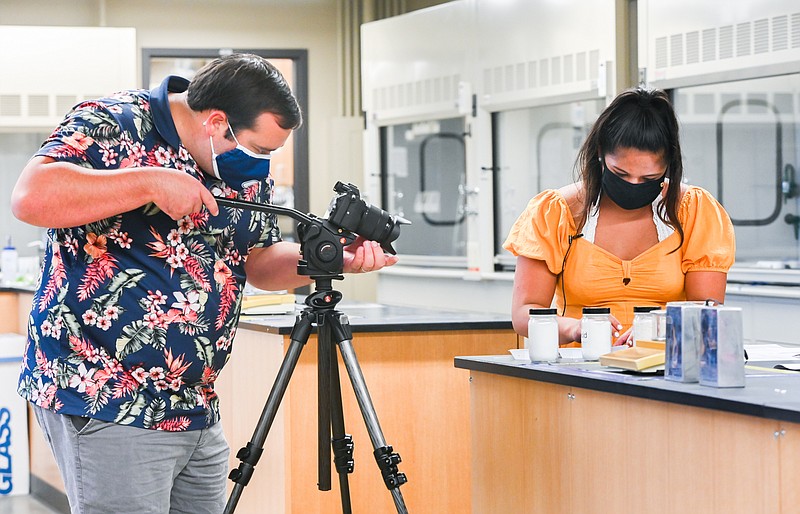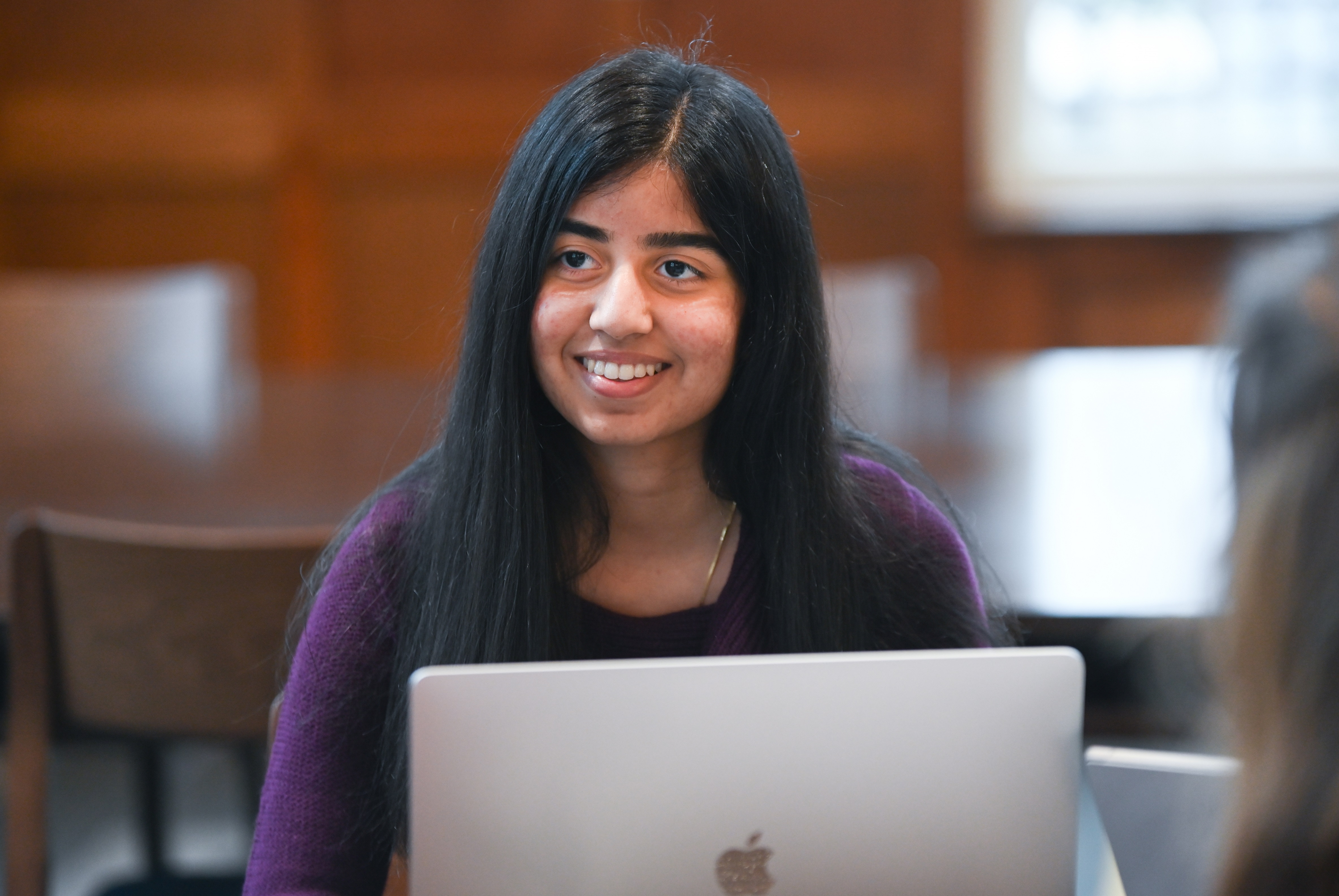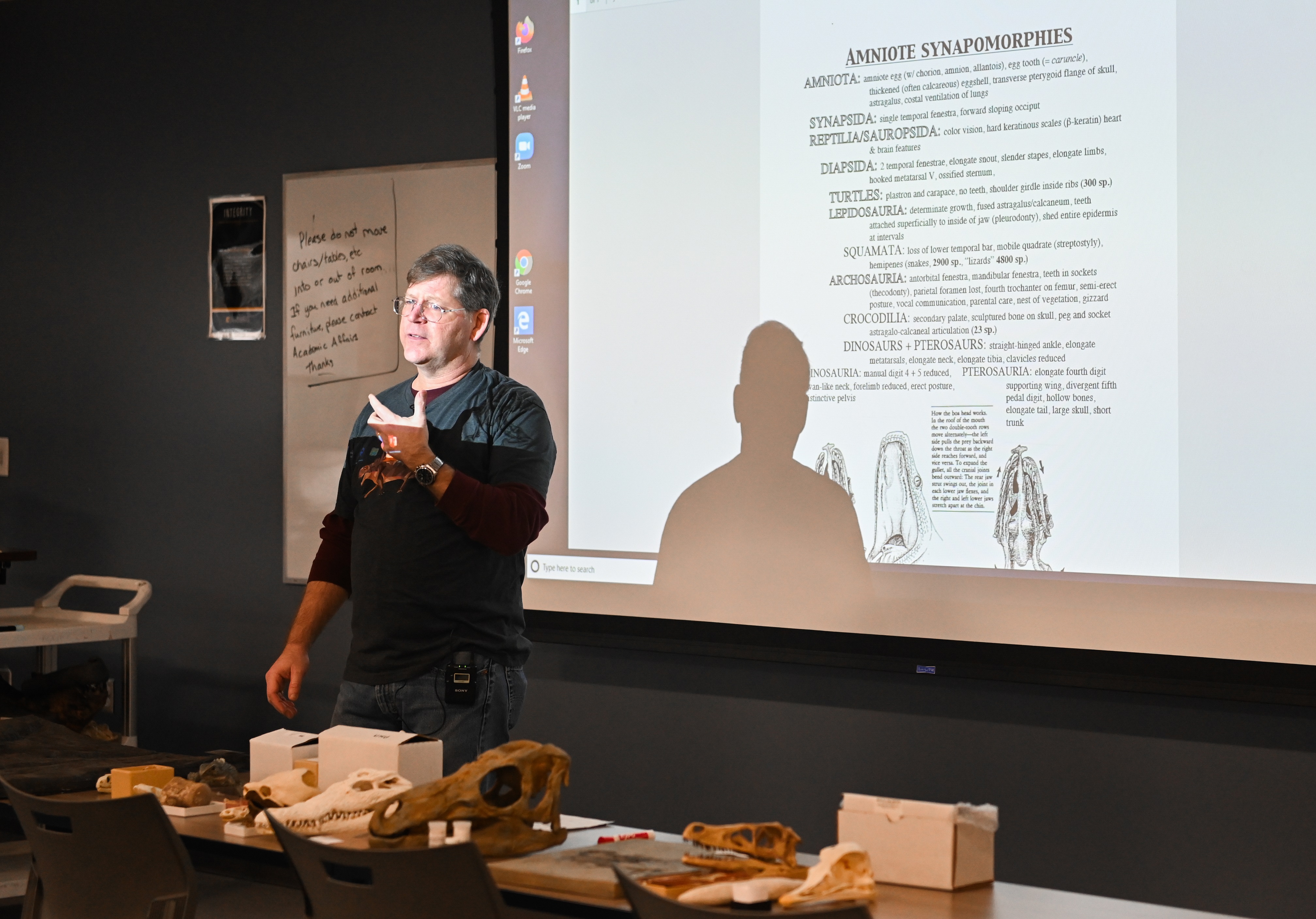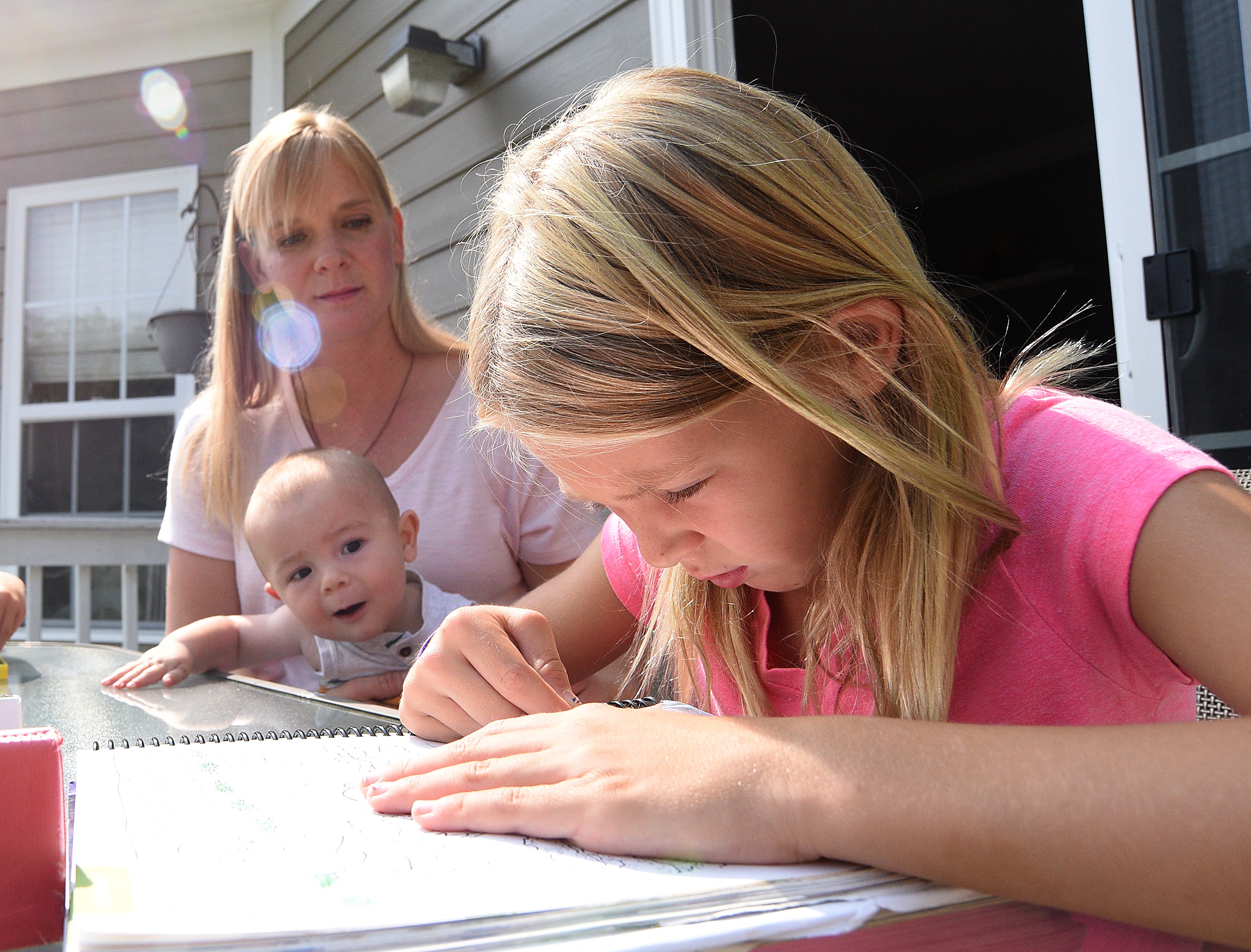A dog barking.
Distraction.
The smells of dinner being prepared.
Distraction.
The screeches! Screams! Whoomps! of a seriously cool video game.
BIG distraction.
These are just some of the detours teachers must drive around - or plow through - when working with students online. During an internet lesson, you're not in the same room as the student, not shoulder to shoulder with the ability to see problems as they play out.
"There's not that in-person ability to see facial expressions or other non-verbal cues as easily, to see if they feel comfortable with the material or are still confused," says Preston Hamill of Traveling Tutors of Chattanooga.
During the COVID-19 pandemic, and now as it ramps up again, online learning has become entrenched in the American education system. Even as students return to classrooms this fall, remnants of the Zoom revolution are here to stay.
Learning how to learn has become a vital skill in itself.
The student
Shriya Purohit, a 17-year-old junior at UTC who enrolled in the school when she was 15 years old (yes, 15) says she was "very pleasantly surprised" with the ease of shifting from in-class to online when the school made the switch in the spring semester 2020. But that doesn't mean she was happy.
"I definitely felt disappointed when UTC went all online," she says.
During fall semester 2020, the school moved to a schedule of some in-class courses, some online and some a mixture of the two. In fall 2021, UTC went back to a completely normal schedule, just like it was before COVID.
Shriya is ready.
"After having more than a year of mostly online classes, I can say that I am definitely looking forward to having in-person classes."
The tutor
Jerold Hale, provost at UTC, says university officials learned many lessons over the past 18 months, but one stands out.
"The biggest lesson learned is that online instruction is possible for most classes and can be accomplished in ways that engage students and meet student learning outcomes," Hale says.
Naturally, when all-online learning began, adjustments were necessary for everyone in all aspects of teaching. While centered on methods, some of the alterations touched emotional soft spots.
"I missed the small details of teaching - pointing to part of a word, watching where their eyes land on the page (word, check picture, word, etc.), and being able to play certain games during breaks as a reward," said Traveling Tutor Magan Lampard.
Not all modifications were unpleasant.
"I like online tutoring. I can really use the camera to emphasize facial expressions and make the kids laugh while we learn. They really seem to enjoy it," said Traveling Tutor Christopher Morris.
It's a problem, though, if the student isn't having a great time, decides the lesson is boring or too hard and simply walks away from the computer.
At UTC, it wasn't just students who knotted up at the idea of online learning.
"Before being forced to pivot by COVID-19 from predominantly face-to-face classes to being completely online, there was a reluctance on the part of many faculty to teach online," Hale says.
Part of it was the rapidity of the change. On March 11, 2020, everything was normal. As usual, a small percentage of courses were online-only. Twelve days later, all courses were online.
In some cases, teachers became students themselves and some took workshops to learn the most efficient and effective way to present course information online.
The teacher
With video cameras, in-class instruction was provided live with students and professors interacting as usual. But some classes also were taped, so students could review later - or watch a class for the first time if they didn't attend the live class for some reason (slept too late, drank too much, just didn't feel like it).
Some of the more difficult tap-dancing was labs in science courses such as chemistry and biology. It's hard to do hands-on work in a lab if it's hard to get into a lab to do hands-on work.
To address the problem, videos were made with steps clearly shown one by one. Students signed up for labs at specific times; spaces were shut off when social distancing was no longer possible in each lab.
Even though things are returning to (sort-of) normal, Hale says not to expect the number of online courses offered at colleges and universities to drop significantly once COVID-19 has lessened its grip on society. They're here to stay and that's a good thing, he says.
"In the future, I expect slow but steady growth in the number of online degree programs offered and in the proportion of courses that are offered online," he says.
"That's an exciting development to help us reach a growing population of Tennesseans with some college but no degree who may be working full-time and unable to attend brick-and-mortar classes. It has life-changing implications for those prospective students."
Teaching without technology
Ruthie Stallings has nothing against using the computer to learn.
She just doesn't want her young children to be tethered to a computer screen.
A physical therapist assistant by trade, Stallings homeschools two of her three children - 7-year-old Emma and 3-year-old William. In his crib, 6-month-old Titus is understandably apathetic about school.
While some homeschooling parents plop their kids in front of the computer for lessons, Stallings doesn't. For her, teaching is hands-on, right-in-front-of-you, pencil-on-paper.
"I love the book-based," Stalling says. "I would rather personally teach from a book than be on a computer screen."
She's not a Luddite when it comes to the internet, she says and acknowledges that before sitting down with Emma and William for their lessons, she hits the web to find the information and resources she needs. But the lessons themselves are either in books or printed on paper before the learning begins, she says.
"Most of the homeschool families I know - including myself - use books as the primary mode of instruction and use the internet as a resource in research or extra things," she says.
"I think the tangibleness of books and the ability to write notes or highlight key phrases is super helpful when learning important information."
Stallings doesn't shy away from important - and sometimes complex - information for Emma, whose lessons sometimes branch out pretty far from your standard second-grade skillset.
"Right now, we're doing logic and critical thinking, which I think is really important," Stallings says. "We're doing zoology this year in science. Things like that, where we can really focus on something that's kind of more specific that maybe you couldn't do with a large group."
Schooling in the Stallings house is not a willy-nilly, "whenever we feel like it" situation. There's a schedule that, if not military strict, keeps to a regular timetable.
"We know exactly what subject we're doing at which time of the day," Stallings says. "We try to get up at a decent time and get started early in the day so by most days, we're finished by like 2 o'clock."
Twice a week, Emma and William attend Veritas Classical School, a Christian-based school that focuses on classroom teaching, the kind that took place before the internet existed, although homework assignments can be completed using whatever resources are available, Stallings explains.
As time goes by and her kids grow up, Stallings says online work likely will creep into schoolwork, even though she'll be handing it out through homeschooling. It's almost impossible to prevent internet use as grades climb higher and assignments get tougher, she says.
"Once my kids get older and need to do research and the like, I'm sure that the internet will become their best friend," she says.




